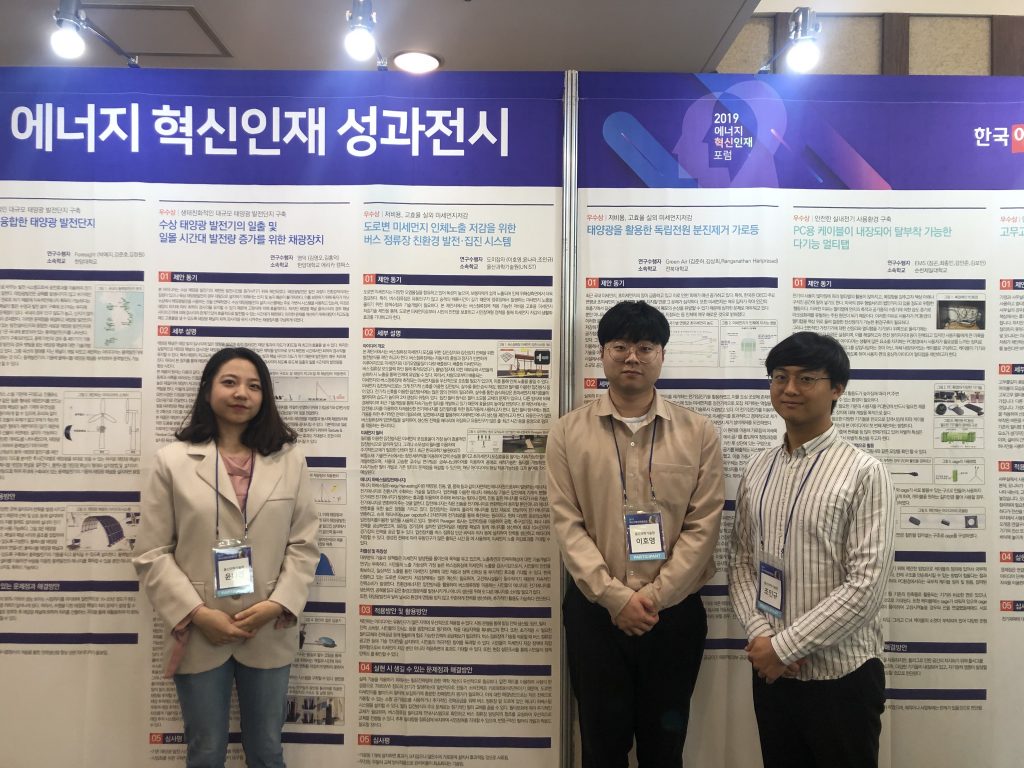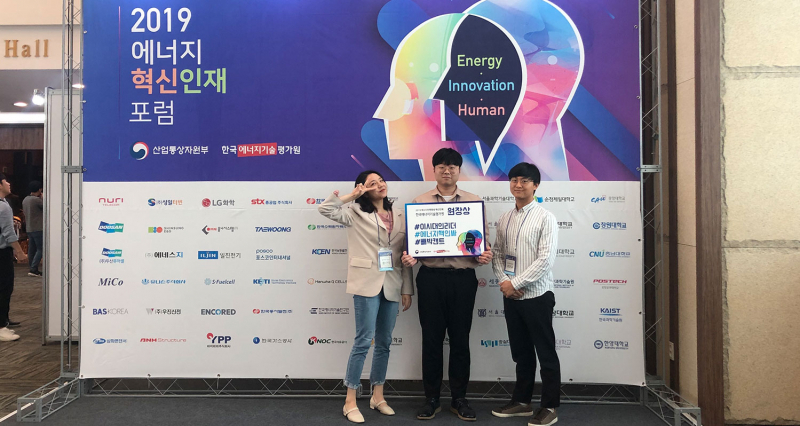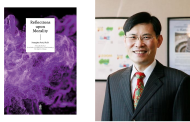A research lab, led by Professor Sung-Deuk Choi in the School of Urban and Environmental Engineering at UNIST, has announced that three of its graduate students have been honored with Excellence Awards at the 2019 Energy Innovation Talents Forum, orgnized by the Ministry of Trade, Industry and Energy and Korea Institute of Energy Technology Evaluation and Planning (KETEP)
With increasing public concern about the health risks posed by fine dust air pollution, a group of UNIST students, consisting of Nara Youn, In-Gyu Cho, and Ho-Young Lee, came up with a fine dust reduction device for use at bus stations. They have been recognized for their innovative idea to combat fine dust pollution, at the award ceremony, took place at the aT center in Yangjae-dong, Seoul on September 27, 2019.
Held under the theme of Clean and Safe Energy Technologies, this year’s competition focused on the following areas: “Construction of large-scale eco-friendly photovoltaic power generation sites,” “Low-cost, high-efficient ways to reduce fine dust levels in outdoor air,” and “Solution to untangle electric plugs in household and office areas.”
Nara Youn and Ho-Young Lee, who were at that time conducting research on air quality and fine dust in their labs, began preparing for the competition by investigating previous research on fine dust pollution.

Image Credit: Ho-Young Lee
“The existing analysis of fine dust pollution data reveals that roadside pollution accounts for more than 30% of overall fine dust pollution around the capital area,” says Ho-Young Lee. “This idea was conceived as the improvement of roadside air quality in our cities where there exist a combination of ‘Secondary fine dust from automobile exhaust’ and ‘Dust scattering due to tire wear’, is directly related to the health of citizens.”
The three focused on the areas where there are more commuters and vehicles. Accordingly, bus stations was chosen as the most efficient location for monitoring fine dust pollution. They substantiated the idea by installing filter type fine dust collecting systems and piezoelectric elements at bus stations. This is because they believed that harvesting piezoelectric energy at bus stops and operating dust collector pumps could aid in developing eco-friendly fine dust reduction device without the need for complicated additional equipment.
Meanwhile, the competition presented three awards for the first and second prizes. The three students were given Excellence Award, thus received KETEP Director Award and a monetary prize of KRW 500,000.








![[2026 UNIST Matriculation] “Design Questions the World Has Never Seen!”](https://news.unist.ac.kr/wp-content/uploads/2026/02/사진-박종래-UNIST-총장이-2026년-입학식사를-전하고-있다-1-1-190x122.jpg)
![[2026 UNIST Commencement] “Become Way Makers Who Open Paths Where None Are Drawn!”](https://news.unist.ac.kr/wp-content/uploads/2026/02/사진-박종래-총장이-UNIST-학위수여식사를-전하고-있다-3-1-190x122.jpg)
![[2026 UNIST Commencement] Voices of Class of 2026](https://news.unist.ac.kr/wp-content/uploads/2026/02/Untitled1-190x122.jpg)



